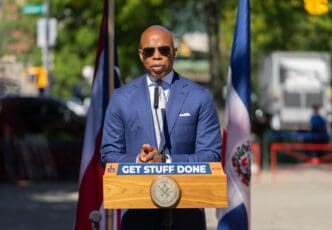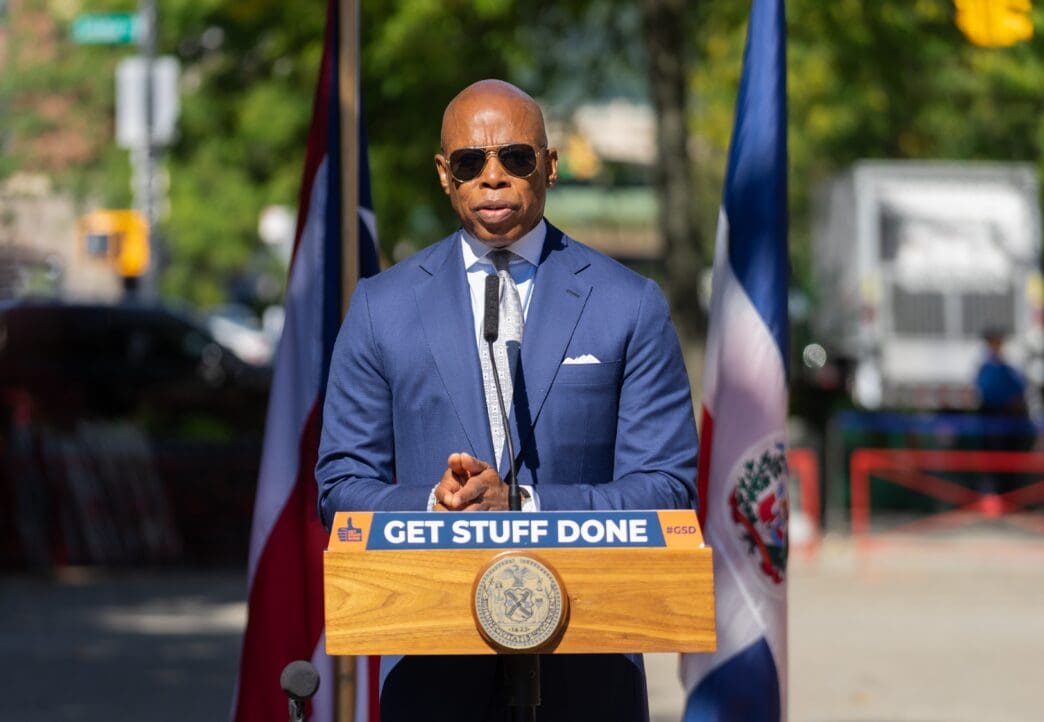Executive Summary
The Story So Far
Why This Matters
Who Thinks What?
New York City Mayor Eric Adams has ended his reelection campaign, announcing his decision Sunday in a video posted to X. Adams cited constant media speculation about his future and the Campaign Finance Board’s decision to withhold millions of dollars as reasons that undermined his ability to raise necessary funds. His withdrawal is a move long sought by rivals of Democratic nominee Zohran Mamdani, who aimed to consolidate opposition against him.
Adams’ Rationale and Impact on the Race
In his announcement, Adams stated, “despite all we’ve achieved, I cannot continue my reelection campaign, the constant media speculation about my future and the campaign finance board’s decision to withhold millions of dollars have undermined my ability to raise the funds needed for a serious campaign.” He emphasized that his campaign was for “the underserved, the marginalized, the abandoned and betrayed by government,” and expressed pride in his four years as mayor.
Adams’ decision adds another layer of complexity to the mayoral primary. Democratic Socialist Zohran Mamdani secured a notable victory in June’s Democratic primary over former New York Governor Andrew Cuomo, who is now mounting an independent campaign. Allies of Cuomo had actively pushed for Adams to withdraw, believing it would improve Cuomo’s chances against Mamdani in the November general election.
External Influences and Political Alignments
President Donald Trump, a native New Yorker, also suggested the field should be narrowed. One of his top aides, Steve Witkoff, met with Adams to discuss potential roles in the Trump administration, including an ambassadorship to Saudi Arabia, during what Adams’ office initially described as a personal trip to Florida.
Despite the push, it remains uncertain how many votes Adams’ withdrawal might shift to Cuomo, given the mayor’s own unpopularity. Adams had been polling fourth behind Mamdani, Cuomo, and Republican nominee Curtis Sliwa. Trump’s intervention in New York City politics has also inadvertently aided Mamdani, reflecting the president’s unpopularity in the deeply Democratic city. Trump has also suggested Sliwa should withdraw, though Sliwa has maintained he will not.
The Cuomo campaign expressed hope that Adams’ decision would free up some of the Black vote, believing even a small percentage could significantly impact the race. Cuomo applauded Adams’ withdrawal, stating he believes Adams “is sincere in putting the well-being of New York City ahead of personal ambition,” and stressing the need to counter “destructive extremist forces.”
State and national Democrats are increasingly unifying around Mamdani, partly in response to President Trump’s efforts to reshape the race in Cuomo’s favor. New York Governor Kathy Hochul and former Vice President Kamala Harris have both endorsed Mamdani. Following Adams’ exit, Mamdani issued a statement asserting, “Donald Trump and his billionaire donors might be able to determine Eric Adams and Andrew Cuomo’s actions but they will not dictate the results of this election.”
Corruption Allegations and Campaign Struggles
In recent weeks, Adams had openly criticized the media, accusing the press of “undermining his campaign” and complicating his ability to raise funds through negative coverage. The city’s Campaign Finance Board repeatedly denied Adams public matching funds for his reelection, citing his campaign’s failure to provide required donor information. These denials began shortly after a federal corruption indictment against Adams last year.
The mayor faced federal corruption and bribery charges last spring, with prosecutors accusing him of soliciting donations from Turkish nationals and exchanging favors for wealthy donors. These charges were later dismissed at the direction of Trump’s Department of Justice, which cited the necessity of collaborating with the mayor to enforce Trump’s immigration crackdown. Adams denied the charges and any indebtedness to the Trump administration for their dismissal, but the episode, alongside ongoing corruption scandals, clouded his reelection prospects.
Adams, a retired NYPD captain and former Brooklyn borough president, was elected in 2021 as New York City’s second Black mayor, positioning himself as the future of the Democratic Party. He campaigned on a platform focused on public safety and economic recovery post-COVID-19, appealing to working-class voters with tough-on-crime rhetoric. Despite his initial vision, his term has been marred by a continuous stream of corruption scandals involving his inner circle and key aides.
Looking Ahead: The Reshaped Mayoral Contest
President Trump has continued to voice his opinions on the New York mayoral race, describing Mamdani’s potential mayoralty as a threat to the city. Trump has suggested he would “take over” the city if Mamdani were elected, and at other times implied a Mamdani victory would benefit the Republican Party. He has urged for a consolidated opposition, stating, “If people would get together and have one candidate, they’d have, I think, a pretty good chance.”
Andrew Cuomo, despite losing to Mamdani by 12 points in the June primary, has acknowledged running a lackluster campaign. He now presents himself as a true Democrat with the necessary governing experience to confront President Trump. However, prominent Democratic leaders, including House Minority Leader Hakeem Jeffries and Senate Minority Leader Chuck Schumer, have not yet endorsed Mamdani. Nevertheless, Mamdani’s primary victory was fueled by strong turnout among younger voters, and he has begun to garner support and praise from other segments of the Democratic establishment.








